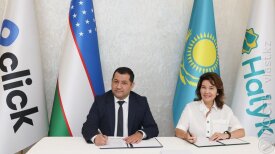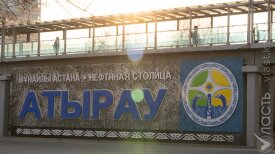Sabit Kurmanaliyev, the former deputy head of the National Security Committee (KNB) of the Almaty region, was sentenced to six years in prison for abuse of power during Qandy Qantar (Kazakh for “Bloody January”), a court in Taldykorgan said on April 7. The court said that, on 5 January 2022, Kurmanaliyev ordered his subordinates to destroy a range of secret documents and leave the building unattended. Kurmanaliyev, similarly to former head of KNB Karim Massimov, was tried behind closed doors.
Trials against officials accused in connection to Qandy Qantar, however, do not always have the same outcome. Serik Kudebayev, the former head of police of the Almaty region, managed to flee his house arrest and is now thought to have found refuge abroad. The General Prosecutor’s Office said on April 6 that it is investigating the escape. According to the border police, Kudebayev likely crossed the border with Kyrgyzstan on March 23.
The consortia operating two of Kazakhstan’s largest oil and gas fields could face arbitration against the government regarding alleged inflated costs, a Bloomberg scoop unveiled on April 5. The government and the trans-national oil companies involved in the dispute have yet to clarify their official positions. On April 7, prime minister Alikhan Smailov held a closed-door cabinet meeting in which the nationalization of oil and gas infrastructure was discussed. Details of the meeting were not disclosed.
The department of emergency situations said on April 7 that its firefighters were able to extinguish a five-day fire outside of Atyrau, in the wetlands along the Caspian Sea shore. The city of Atyrau suffered an increased level of air pollution due to burning reeds and accidents at two oil refineries in the city. The level of carbon monoxide in the city’s air exceeded safe values by 130 times.
Workers at KazAviaSpas, the ministry of internal affairs’ emergency team, sent resignation letters on April 5, lamenting lack of safety on the job and worsening working conditions. In February, a KazAviaSpas helicopter crashed during a rescue operation killing four.
President Kassym-Jomart Tokayev appointed former head of the presidential administration Murat Nurtleu to the post of foreign minister. Former head of the Anticorruption Agency Olzhas Bektenov took Nurtleu’s place at the presidential administration on April 3.
Tokayev also appointed Almasadam Satkaliyev, former head of state holding Samruk-Kazyna, as the new minister of energy on April 4. Nurlan Zhakupov, former chairman at Kazakhstan Investment Development Fund, took Satkaliyev’s job at Samruk-Kazyna.
On April 4, his last day in office, former minister of energy, Bolat Akchulakov said that fuel prices would increase across the country between 11% and 20%. Akchulakov was then named adviser to the president. Kazakhstan periodically faces fuel shortages.
Kazakhstan’s ministry of energy said on April 7 that it would follow the guidance of the OPEC+ group and cut its oil output by 78,000 barrels a day from May until the end of the year. Kazakhstan is a member of OPEC+, an enlarged version of the Organization of Oil Exporting Countries. The output reduction planned for Kazakhstan amounts to roughly 2.5 million tons, which is likely to negatively affect the earlier plan of producing 90.5 million tons in 2023.
Anatoli Shkarupa, former deputy minister of energy, is suing the ministry of finance for moral damage, after he was found not guilty of embezzling 215 million tenge (equivalent to $580,000 at the time) in 2018.
Kazakhstan’s Central Bank maintained the main interest rate at 16.75% on April 7, against bullish expectations that it would cut it. “Inflation is still high,” the Bank warned.
Поддержите журналистику, которой доверяют.








